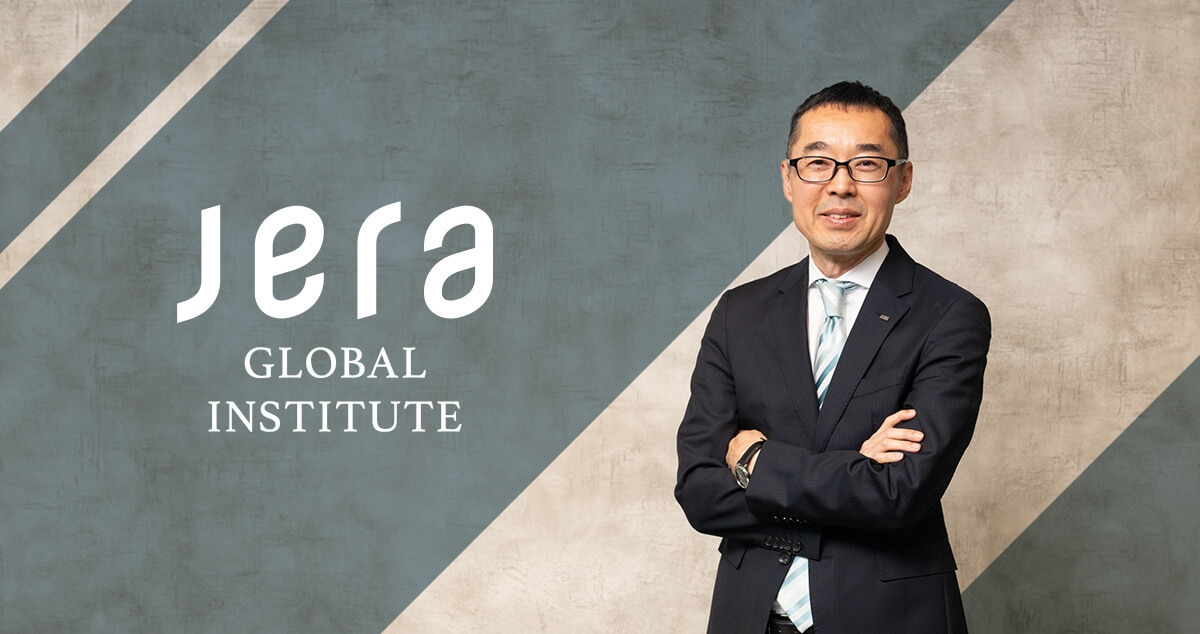
What can “intelligence” do to solve the world’s energy issues? A Conversation with Shuji Munekuni, Head of JERA Global Institute, JERA’s think tank.
23 April 2025
In January 2025, JERA, Japan’s largest power generation company, launched a new think tank: “JERA Global Institute”. Building on its existing research and analysis framework, JERA has bolstered its ability to pinpoint energy trends both in Japan and abroad and enhance its foresight capabilities.
Amid intensifying global uncertainty, growing geopolitical risks, and a historic shift toward decarbonization and climate action, energy issues have become one of the most critical challenges for the international community. From fuel procurement to power generation and wholesale sales of electricity and gas, JERA owns and operates the entire energy value chain and leads Japan’s domestic energy market while confronting the formidable challenge of the energy trilemma: how to achieve stability, affordability, and sustainability simultaneously.
The newly established JERA’s Global Institute was created to support JERA’s future strategic planning and decision-making. By swiftly detecting changes in international affairs, the new institute sharpens corporate judgment through insight into geopolitical risks, energy supply and demand trends, and emerging technological innovation. The institute delivers reliable, forward-looking intelligence to help charter the future. To better understand the vision and role of the new institute, we spoke with Shuji Munekuni, Head of JERA Global Institute.
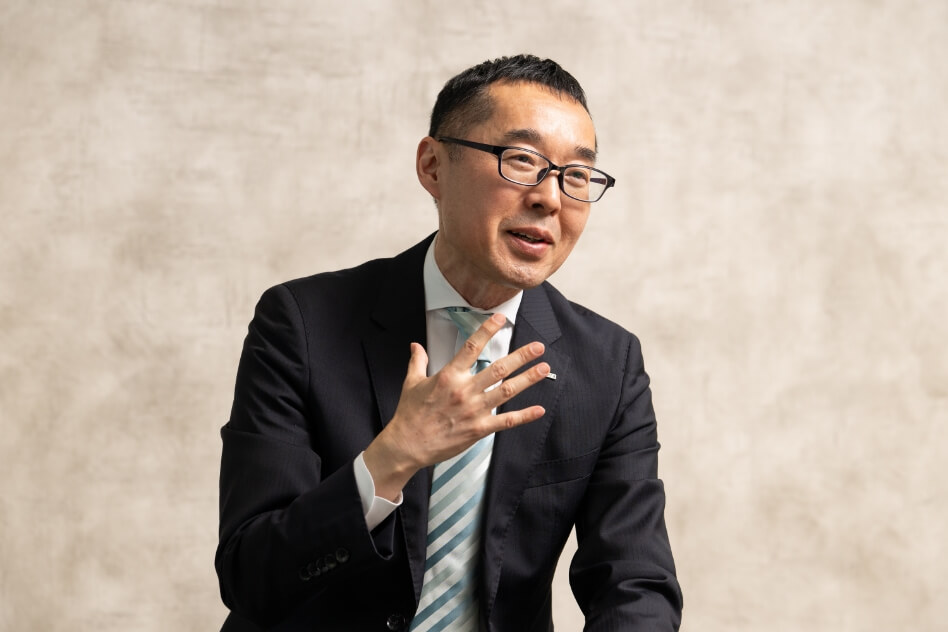
Tackling the Energy Trilemma: Intelligence to support Decision-Making
Energy is the lifeline of any nation, forming the foundation of both industry and our everyday lives. Therefore, securing a stable energy supply is a top national priority. In recent years, geopolitical disruptions triggered by global conflicts, regime changes, and shifting policies have undermined energy security, with far-reaching consequences for people’s lives. Meanwhile, the global drive toward sustainability, especially efforts to decarbonize and reduce environmental impact, remains a major and urgent challenge.
For instance, in recent years, Europe has prioritized environmental policy, often leaving energy security as a secondary concern. When pipeline gas supplies were cut off following Russia’s invasion of Ukraine, energy prices soared. This surge in prices severely impacted the competitiveness of European industries.
The fast-moving nature of U.S. politics has significant ripple effects across the globe, demanding constant and careful attention. In Europe, the rise in power of right-leaning governments also led to major shifts in environmental and decarbonization policies. Now more than ever, we must monitor policy shifts with precision to maintain a clear grasp of global energy dynamics and consistently deliver accurate forecasts for the future.
JERA Global Institute was established to serve as a compass to navigate the increasingly unpredictable world and guide JERA toward a more resilient future. As a think tank, our mission is to support JERA’s strategic decision-making by conducting scenario analysis and forecasting and accurately identifying future risks and opportunities.
The three pillars—stability, affordability, and sustainability—form an energy trilemma, where achieving all three simultaneously poses a significant challenge. Yet, for JERA, and for Japan, and the global community, finding the optimal balance among these competing priorities is an essential and urgent task.
JERA Global Institute is closely linked to JERA’s mission and vision. While we do not run operations ourselves, our role is to provide the intelligence JERA needs to realize its vision. The insights we generate through research and analysis shape JERA’s strategic decisions and business development that can contribute to a successful energy transition that balances stability, affordability, and sustainability.
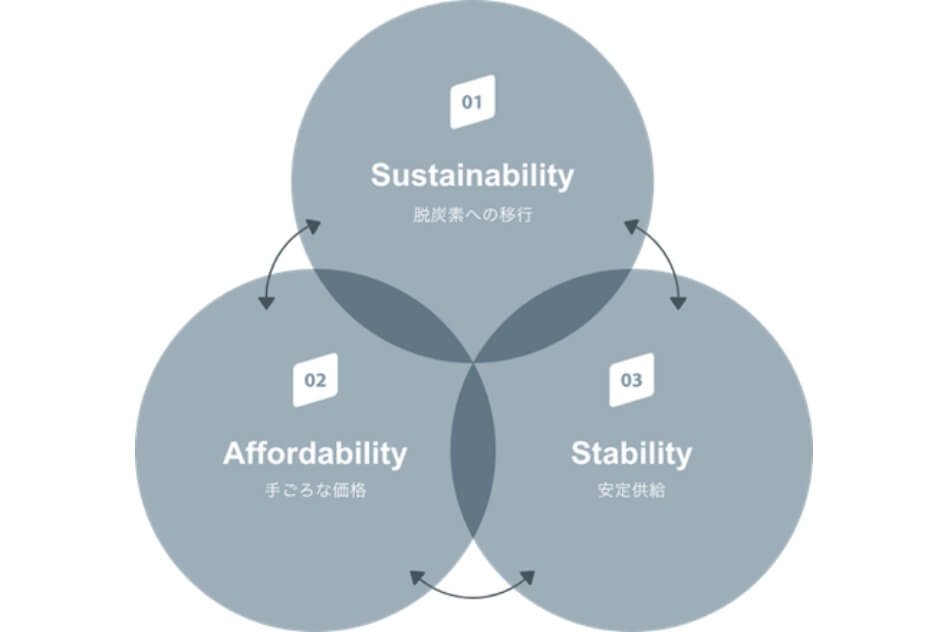
Navigating an Evolving Global Energy Landscape
What kind of intelligence is required to navigate this evolving world? For example, how will global energy demand shift in the years ahead? If China’s growth decelerates, how would it affect supply- demand dynamics in India, Southeast Asia, and Europe? What impact would a recession in the U.S. or Europe have on global energy markets?
Addressing these complexities requires more than simply extrapolating from past supply- demand data. We must conduct a comprehensive analysis of macroeconomic trends influenced by policy, technological advances, industrial developments, and market movements. It’s crucial to adopt a multifaceted approach to gain a complete understanding of the energy sector.
The role of JERA Global Institute is to closely monitor these developments and conduct in-depth analysis of how politics, policy, and macroeconomics – shaped by regional characteristics - impact energy markets.
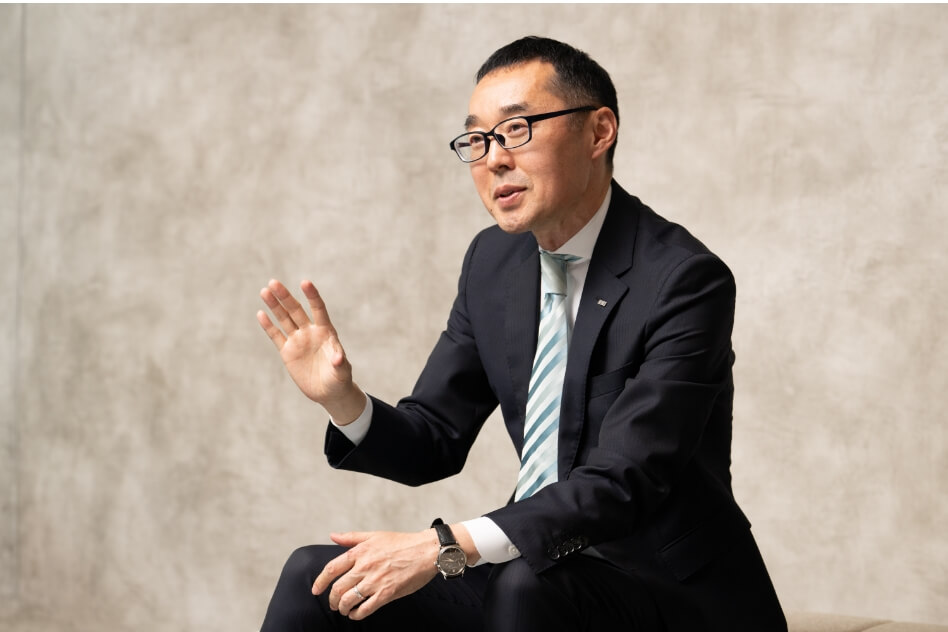
We also regard technological and industrial innovation as a key focus of our research.
Technological innovation plays a major role in shaping the energy market. For example, advances such as more efficient solar panels, low-cost, lightweight, flexible perovskite cells, technological advances in battery storage and EVs, and emerging hydrogen and ammonia technologies are transforming the landscape. These next-generation technologies demand precise forecasting and continuous close monitoring.
Sectors such as data centers, AI, and semiconductors are expanding rapidly and demand enormous amounts of energy. Understanding how these industries will grow and when energy demand will spike is essential.
Energy price fluctuations are closely linked to geopolitical risks and macroeconomic trends. Grasping movements in oil and gas prices, as well as the impact of falling renewable energy costs, is central to the institute’s role in tracking and forecasting market movements.
In fulfilling its mission, JERA Global Institute leverages its position as an in-house think tank, a unique advantage that allows us to incorporate real-world insights from actual energy operations, offering a depth of perspective that goes beyond what conventional desk-based research can provide. In addition to its domestic base, JERA’s global business presence enables the institute to incorporate regional energy policies and market trends from around the world, enabling us to deliver intelligence that is both precise and globally relevant.
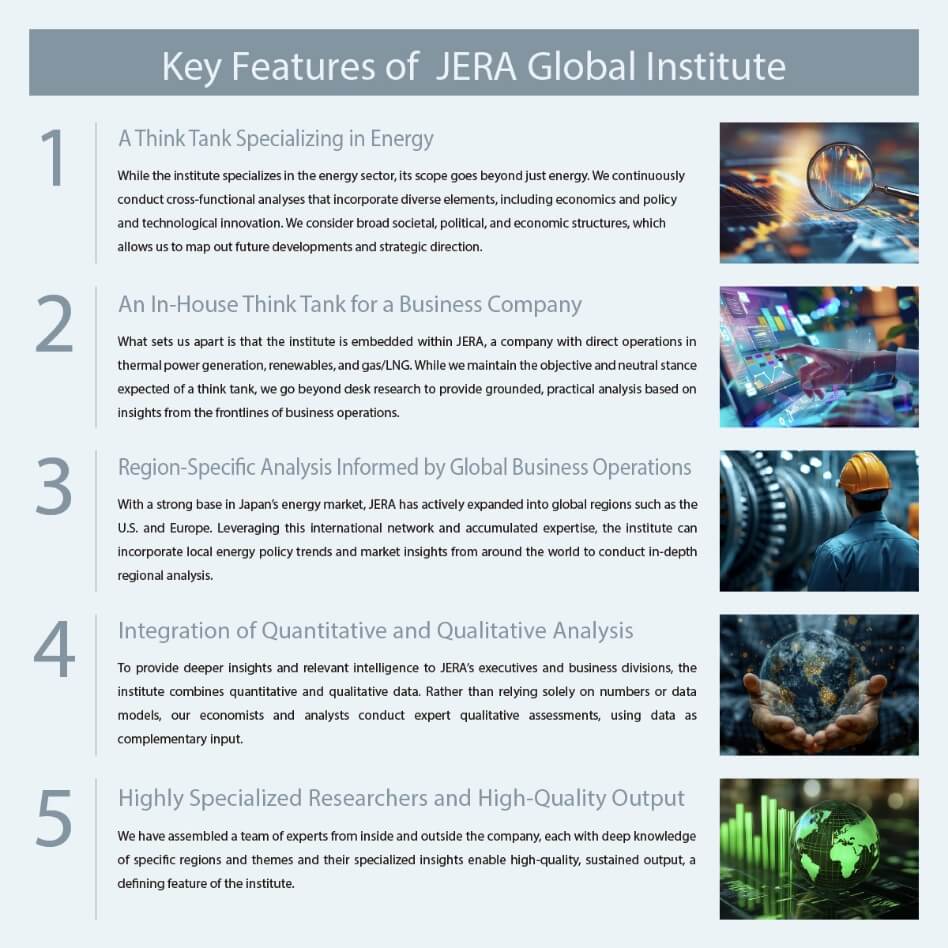
A 30-Year Commitment to Energy
Over the course of more than 30 years in my professional career, I have consistently been engaged in the energy sector, building experience across three main fields.
The first is research and consulting—the very focus of the mission of JERA Global Institute. For many years, I was engaged in energy-related research and consulting at financial institutions. The second area is quantitative analysis, mathematical modeling, and broader technological developments, including AI. The third is new business development and innovation. With sustainability and SDGs as guiding principles, I have led efforts to drive innovation that addresses pressing social issues while accounting for energy and environmental challenges.
Over the years, I have witnessed dramatic shifts in the global and domestic energy landscape. Today, the ways in which Japan confronts its energy challenges will be a defining issue that will shape the coming era.
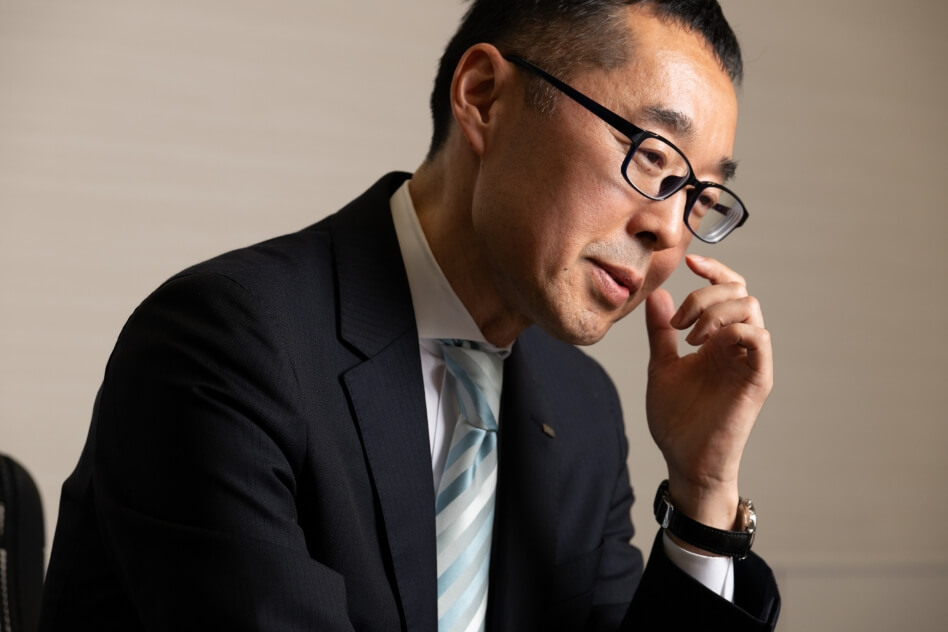
It was in this context that I joined JERA because I knew it was a place where I could apply all my experience and take on a new challenge. My role is to provide the intelligence that supports critical decision-making at the company, and I feel the weight of that responsibility every day.
No Room for Error: The Mission of JERA and JERA Global Institute
Japan’s energy policy has undergone major shifts over the past decade.
When launching JERA Global Institute, one of our top priorities was to foster a shared understanding throughout the organization that energy intelligence is essential.
As Japan’s largest power generation company and one of the world’s leading LNG operators, JERA is committed to its mission of solving the complex challenges of the energy trilemma head-on.
Every decision JERA makes has the power to shape the future of energy in Japan. Precisely because the company wields such significant influence, there is no room for error in the direction it takes. JERA’s impact extends far beyond Japan; it has the potential to influence the future of global energy landscape. That is why making the right decisions right is imperative.
The role of JERA Global Institute, as JERA’s in-house think tank, is to provide the intelligence needed to avoid missteps in decision-making. It’s our job to support the executive leadership and contribute to both energy stability and the advancement of decarbonization efforts. That is why the expertise of our members, their research capabilities, and the accuracy and clarity of the information we deliver are critical.
The success of JERA Global Institute depends entirely on the efforts and achievements of each individual researcher. To build a truly valuable think tank, each member must continue to deepen their expertise and sharpen our collective expertise.
We aim to develop leaders and experts who are seen as the go-to for guidance in their respective fields. We place the highest value on deep intellectual curiosity and tenacity in pursuit of knowledge.
Dialogue and Co-Creation: Generating New Intelligence
JERA Global Institute is also actively building partnerships outside the organization. We are developing networks with other think tanks and collaborating with universities and research institutions to conduct joint studies that yield deeper insights. When it comes to guiding the direction of energy policy, no single company’s opinion is enough. That is why it is crucial to engage in continuous dialogue with stakeholders from industry and academia to exchange perspectives and work together to build a shared understanding.
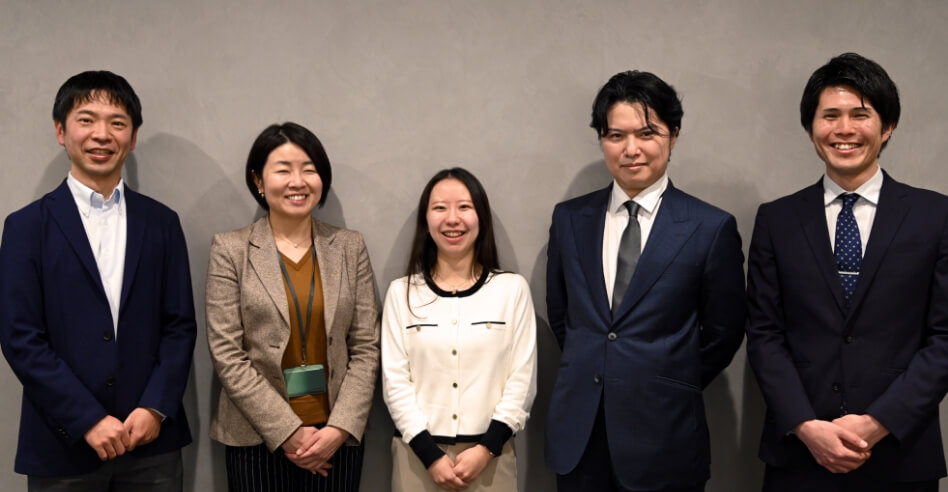
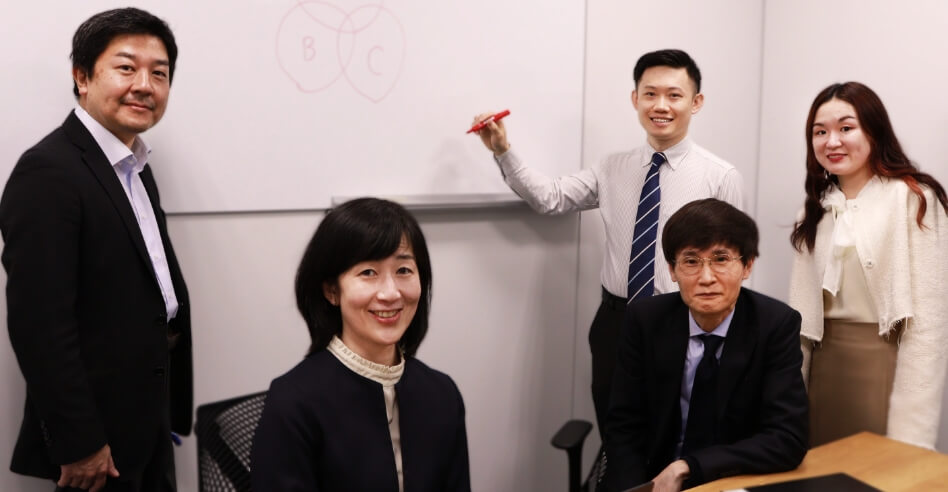
Members of the JERA Global Institute
Fortunately, since our launch, we have attracted a great deal of attention from across the energy sector and beyond, leading to more opportunities for meaningful dialogue. As we continue to value collaboration beyond our organization, we hope to establish the institute’s reputation and become a trusted presence both within the industry and across society.
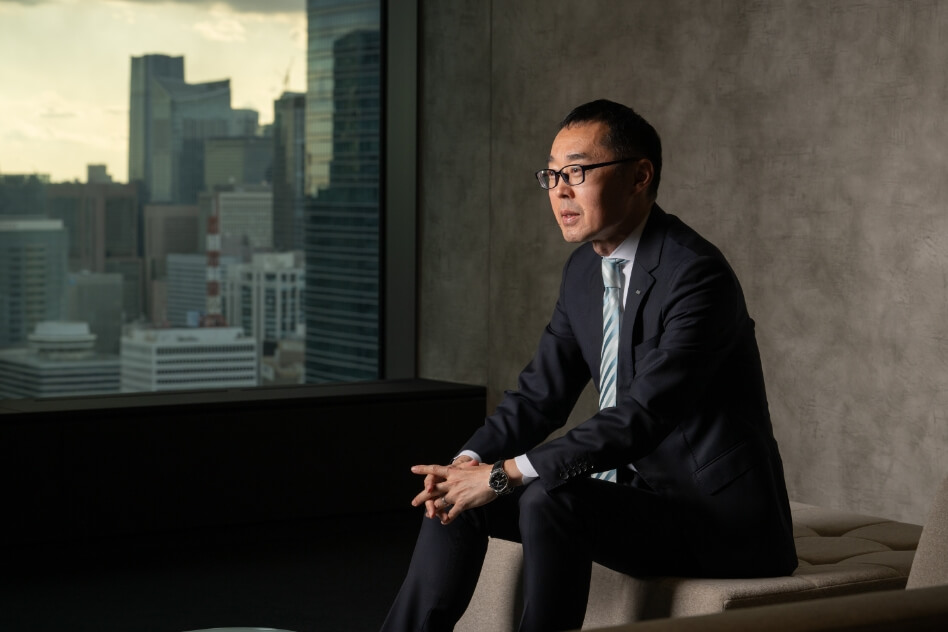
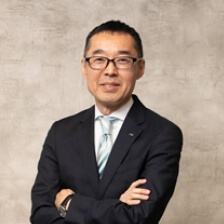
Head of Institute, JERA Global Institute
JERA Co., Inc.
Shuji Munekuni
Shuji Munekuni earned his master’s degree in Electrical Engineering from the Graduate School of Science and Engineering at Waseda University in 1991. That same year, he began his career at the Industrial Bank of Japan. In 1999, he completed a master’s degree in Management Science and Statistics at Stanford University. In 2007, he became the General Manager of Financial Engineering Division I at Mizuho-DL Financial Technology. In 2015, he was appointed Deputy General Manager of the Industrial Research Division at Mizuho Bank, followed by his appointment as General Manager of Portfolio Management at Mizuho Financial Group in 2016. In 2020, he was named Senior Managing Executive Officer at Mizuho Information & Research Institute and later became President and CEO of Blue Lab. Munekuni joined JERA in July 2023, where he led preparations to launch a new think tank within the Planning Division. In January 2025, he became the founding head of the JERA Global Institute.
RELATED STORIES
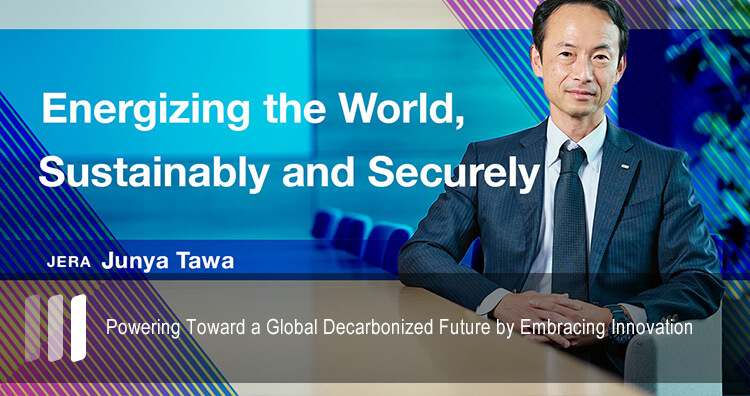
Powering Toward a Global Decarbonized Future by Embracing Innovation

JERA Cross Launched to Accelerate Corporate Green Transformation (GX)

Challenging the Skepticism of Green Countries: The Reality of Ammonia as a Fuel Source
A variety of solutions to combat global climate change are being pursued around the world.

